Online Registration
|
Date of Visit
|
7/8/2021 (Saturday)
|
Date of Registration
|
26/7/2021~7/8/2021
|
|
Place of Visit
|
Cotai Ecological Zones or Macao Electronic and Electrical Equipment Recycling Treatment Facility
|
Registration Method
|
Online registration, or onsite at Secretariat Office at 2021MIECF Please present your badge for registration
(First Come First Serve, with Limited Seats)
|
|
Time of Visit
|
10:00-11:00
|
Assembly Point
|
MIECF Information Counter, The Venetian Macao (Next to escalator)
|
|
Languages
|
Chinese and English Guide
|
Assembly Time
|
09:50
|
|
Target Participants
|
All professional visitors/ delegates
|
|
Itinerary
|
| (10:00-11:00) |
Content |
| 9:50 |
Onsite Announcement to remind about assembly time and point. There will be staff holding the “Technical Visit” handheld signage at the assembly point |
| 10:00 |
Walk to shuttle bus station |
| 10:05-10:45 |
Start visiting |
Cotai Ecological Zones
- Birdhide facilities
- Visit Natural Educational Trail
Macao Electronic and Electrical Equipment Recycling Treatment Facility
- Introduction of the Electronic and Electrical Equipment Recycling Programme
- Various facilities within the entity
|
|
10:45
|
Re-group and return to venue |
| 11:00 |
End of Visit |
Remarks:
1)
Registered participants must get to the assembly point on time;2)Please bring along the badge used for registration for identification;3) Please wear masks and follow the whole group during the whole visit.
Introduction to the Technical Visit
Cotai Ecological Zones
The Cotai Ecological Zones are located next to the Lotus Bridge of the Cotai area, with a total area of 55 hectares, including a 15 hectares Ecological Zone I with limited access, and a 40 hectares Ecological Zone II with free access to the public on the riverside. Located at the northeastern side of the Lotus Bridge, Ecological Zone I is constructed with two birdhides at its south bank. This zone has aquatic shrubs, reeds, trees and mud, and it is connected, through culverts, to the Shizimen’s water course. Spreading at the west side of the Cotai area, Ecological Zone II has three artificial islands, and a trail where you can find four native mangrove species: Acanthus ilicifolius, Kandelia obovata, Avicennia marina and Aegiceras corniculatum.
The Cotai Ecological Zones were established in 2004, and have been managed by professional companies since then. It is also a research location; where data on benthos, plants, birds, water quality and environment conditions are collected in a systematic manner. The Cotai Ecological Zones have 385 species of plants, 85 species of fishes, 133 species of zoobenthos and 518 species of insects. The rich bio-diversity and food availability of the Zones make it an ideal habitat and feeding sites for 186 species of resident and migratory birds, including some endangered species, such as the black-faced spoonbill (Platalea minor). During the 2020 winter migration season, 54 black-faced spoonbills have been spotted living in the Cotai Ecological Zones.
In recent years, the Cotai Ecological Zone have received about 3,000 visitors each year. In the coming future, new enrichment and upgrade of the educational facilities will turn the Cotai Ecological Zones into the environmental and ecological education sites in Macao.
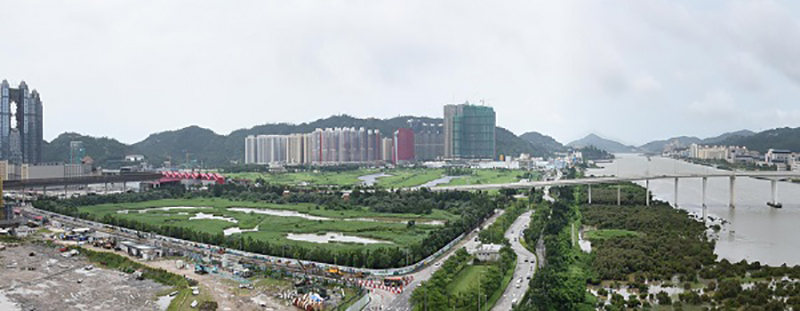 |
|
Cotai Ecological Zones
|
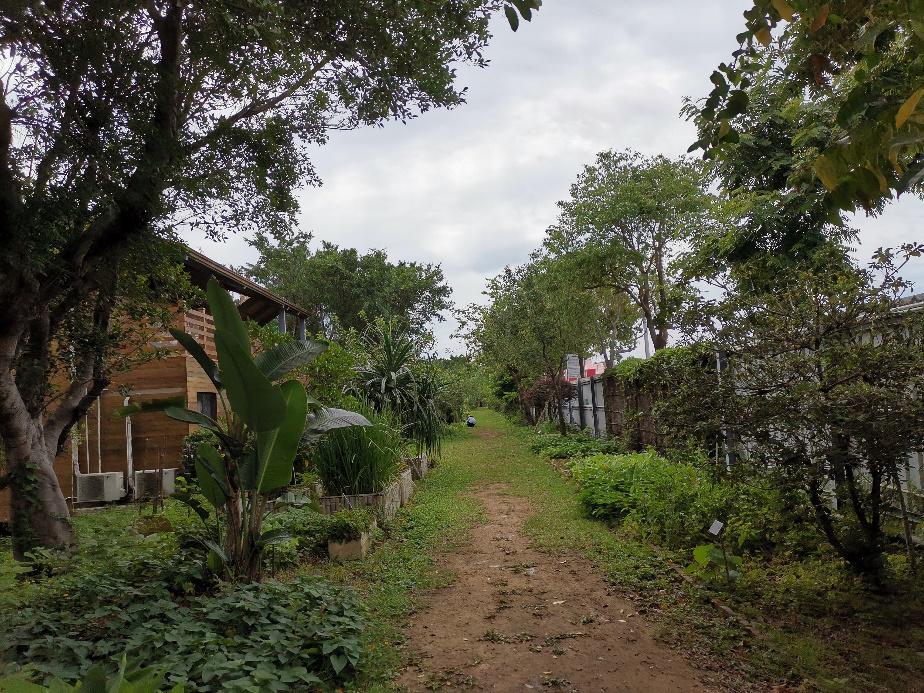 |
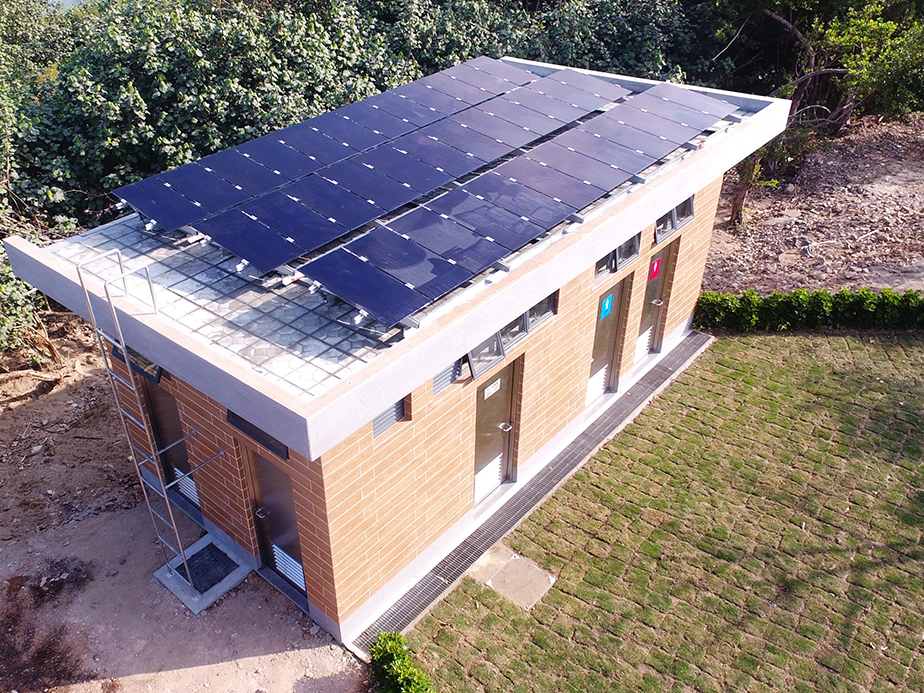 |
|
Birdhide and Natural Educational Trail
|
Solar-powered Toilet
|
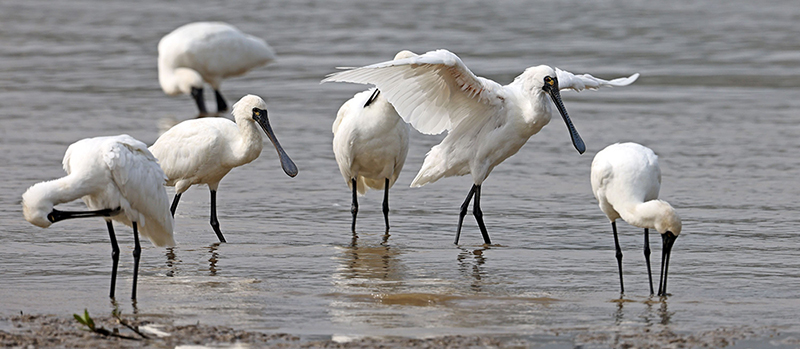 |
|
Black-faced spoonbills (Platalea minor) in the Cotai Ecological Zones
|
Introduction to the Technical Visit
Macao Electronic and Electrical Equipment Recycling Treatment Facility
To implement the solid waste disposal policy of “Source Reduction and Waste Recycling”, Environmental Protection Bureau (DSPA) launched the “Waste Battery Collection Plan”, “Computer and Communication Equipment Recycling Scheme”, “Disposing used lamps is easy” and “Electronic and Electrical Equipment Recycling Programme” in recent years.
The “Waste Battery Collection Plan” and “Disposing used lamps is easy” have so far set up about 1,300 and 850 collection points in Macao, respectively, in order to provide citizens with the most convenient ways for the recycling of batteries and lamps, including schools, shops, service points of organizations, residential and commercial buildings, public departments and public refuse disposal stations etc.. More than 106 tons of batteries and 30 tons of lamps have been collected. Relevant trans-boundary movement procedures will be carried out in accordance with the Basel Convention. And the collected waste batteries and used lamp will be transported to Japan or other regions via ports of nearby cities for subsequent recycling and resource utilization.
Since Year 2020, on the basis of the “Computer and Communication Equipment Recycling Scheme”, DSPA launched the “Electronic and Electrical Equipment Recycling Programme” by expanding the types of recycling to domestic electronic and electrical equipment (including large domestic appliances such as refrigerator, air conditioner, washing machine and television, as well as small domestic appliances). Home collection service will also be provided for large domestic appliances. More than 260,000 pieces of electronic and electrical equipment have been collected up to now. The collected electronic and electrical equipment will be sorted and selected. If the electronic and electrical equipment meets the donation requirement of DSPA, it will be donated to the local charity organizations or be reused in the DSPA facilities after certain treatment. More than 1,300 pieces of electronic and electrical equipment have been donated and reused. The rest will be dismantled, crushed, grinded and sorted by the contractor of the recycling scheme, and components and materials will be shipped to other regions for subsequent recycling, in strict compliance with the relevant trans-boundary movement procedures of the Basel Convention. The overall recovery rate of component and material is up to 90% for the aforementioned scheme.
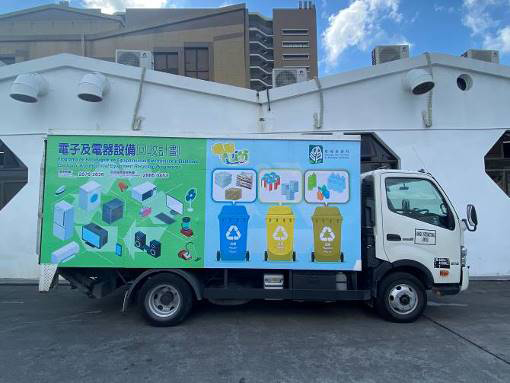 |
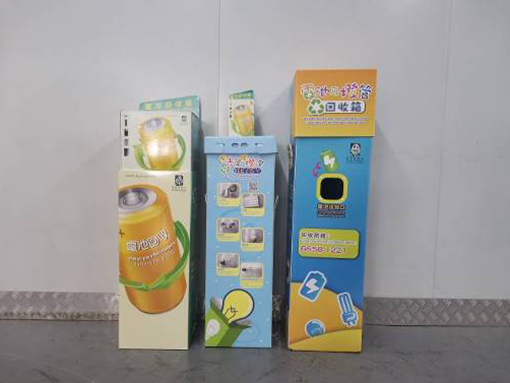 |
|
Mobile Recycling Truck
|
Recycling Box
|
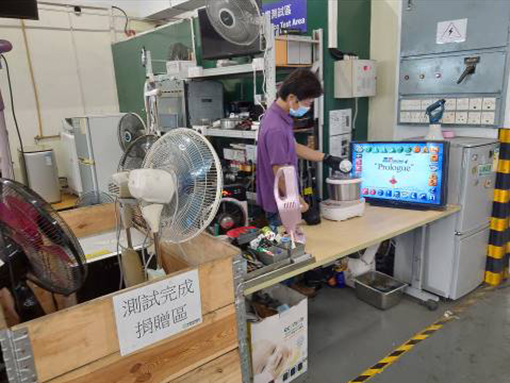 |
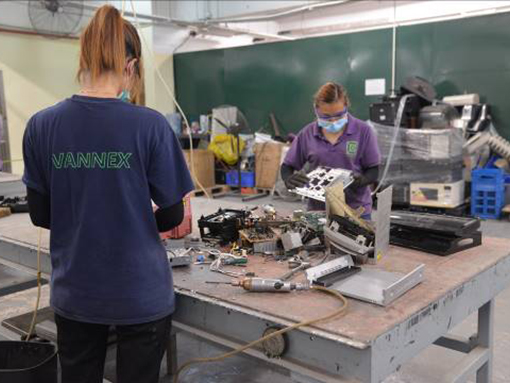 |
|
Reuse Test
|
Dismantlement and Classification
|




















